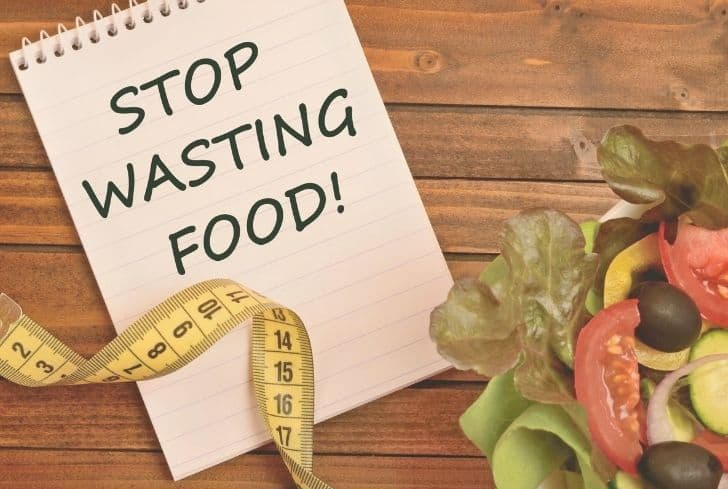The average American throws 219 pounds of food into the dumpster every year. Not only is this environmentally harmful, but it isn’t financially wise either! In a culture where things are so readily pitched into the trash can, stop this consumerist mindset in its tracks with these easy tips below.
Waste Not, Want Not
Make sure you get the most of the food that you buy. When vegetables lose their crispness, throw them into a soup rather than throwing them out. Save your chicken or beef bones and use them, along with your celery tops and other vegetable scraps, to make your own nourishing bone stocks. When berries start to go soft, freeze them to use later in smoothies. Hard boil any eggs that are past their peak freshness – they actually peel better at that point anyways! Any vegetables or fruit that you can’t find a way to reuse or freeze should be composted, to be used in improving soil quality rather than adding to a landfill somewhere.
Buy What Would Otherwise Be Thrown Out
If produce isn’t uniformly shaped and colored, it gets picked over in the grocery stores until it is eventually thrown out. Many producers avoid the cost of shipping food that doesn’t sell by throwing it out immediately and not even bothering transporting it to the grocery store. So much food waste! Services such as Imperfect Foods saves food from being discarded. They realize that this food is just as delicious and nutritious, and offer it directly to consumers at a discounted price. The discounted savings more than make up for the subscription fee. Nourishing, slightly misshapen produce, delivered to your door at a reduced price, and less food waste? Sounds like a plan.
Cook Traditionally
Sadly, there are many cuts and parts that butchers toss – not because they aren’t deeply nutritious, but because people no longer know how to cook them! What a waste of resources. Ask your meat farmer or butcher if they have any off-cuts or animal fats that are sitting unwanted. Oxtail soup is absolutely delicious. Liver is increasingly noted for its health benefits. Some odds and ends aren’t particularly easy to eat, but make a collagen-rich broth. Tallow and lard are healthier cooking oils than vegetable or canola oils by far. All these cuts are available for free or cheap for the asking!
Buy In Bulk, But Not Too Much
Buying in bulk not only saves monetarily, but it also saves on packaging waste and transportation emissions. However, if you buy in bulk and most of the items go bad, stale, or rancid before you get to them, not much good is being done. Consider what items you can truly buy in bulk, and then make sure you properly store them. Even if that requires lidded five-gallon buckets, one plastic bucket produced one time and used for decades is better environmentally than regularly buying and then throwing away a multitude of little plastic packages.
Eat What You Have
You likely have some items in your pantry or freezer than have been there for months. Use them up! Work them into your meal plan! Food sitting unused, even if its shelf stable, is food wasted. Check your fridge regularly for leftovers that might have gotten pushed back and behind items. If you’re someone who just never seems to eat your leftovers, find ways to make new meals with them. The serving of steamed vegetables and the extra bit of taco meat would make a fantastic stew. Put some different spices or sauces on the leftover rice to change up the flavor from the first time you ate it. There’s no reason for food to be thrown away!
